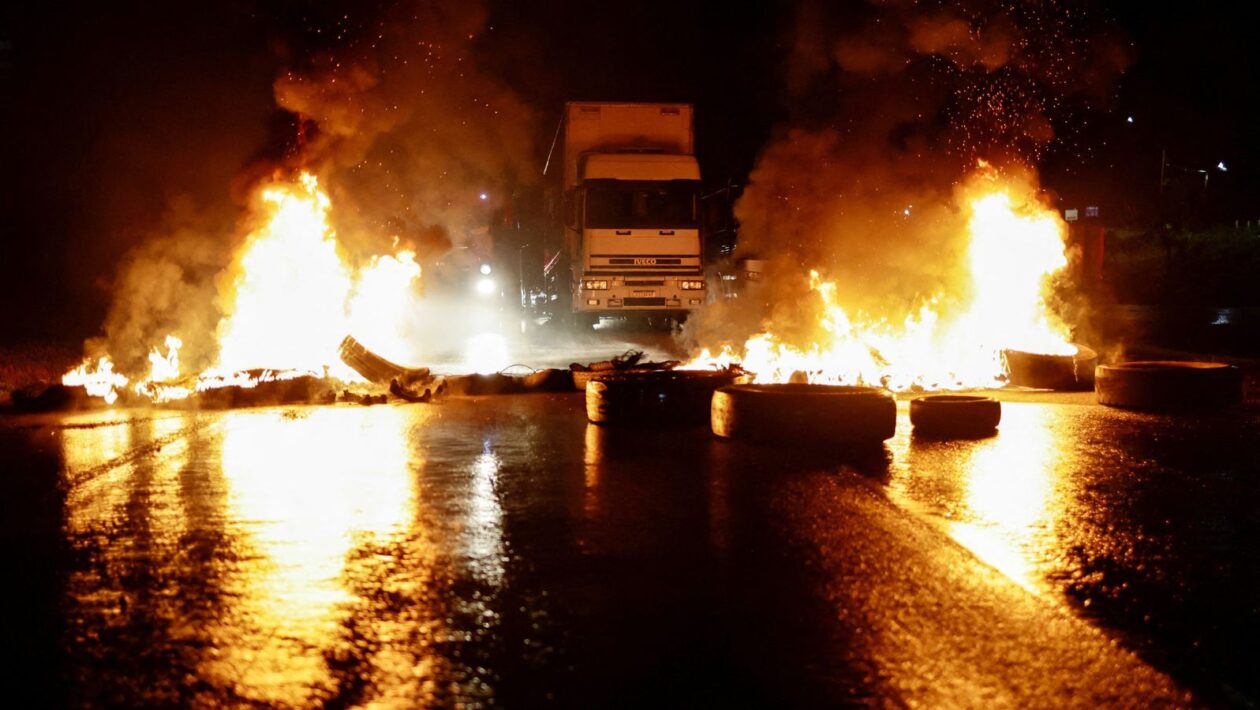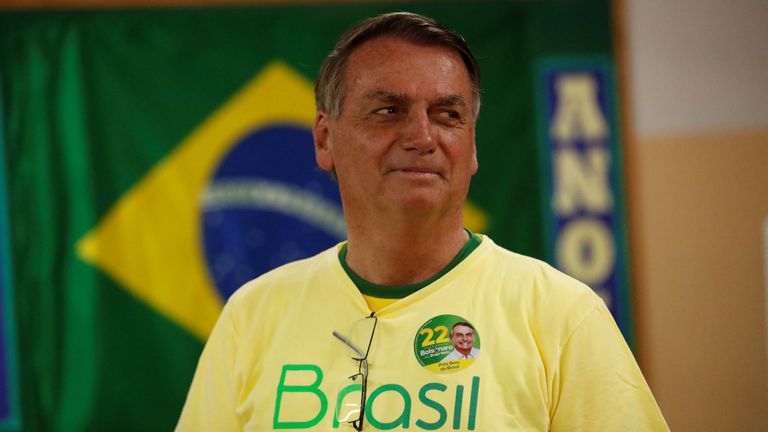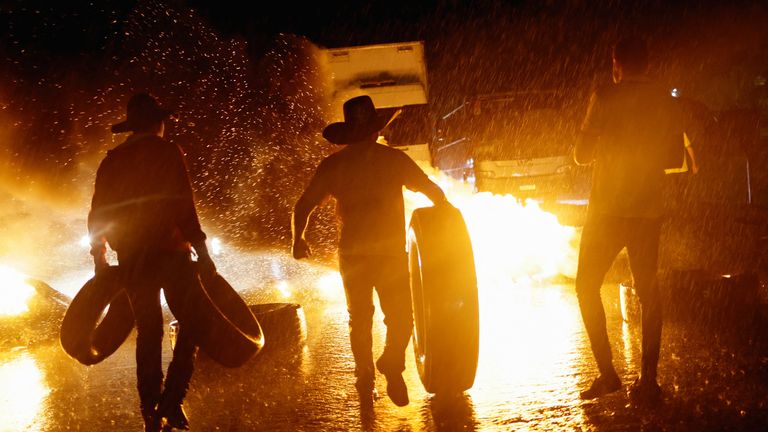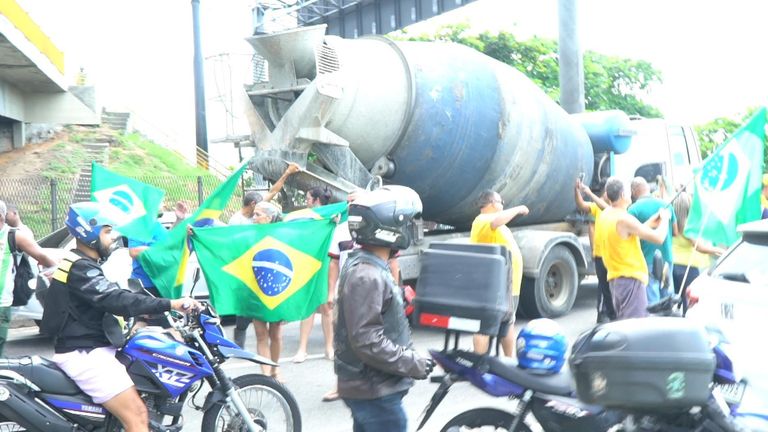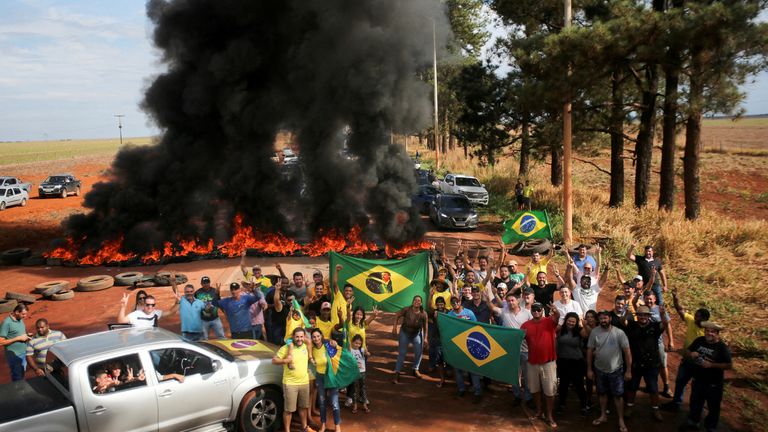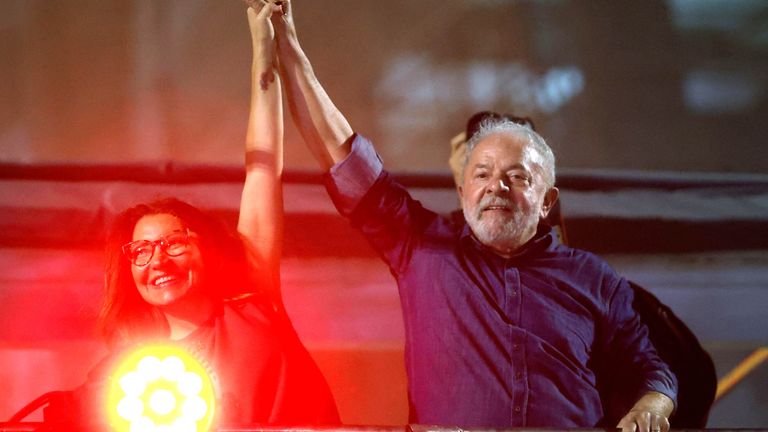[ad_1]
Jair Bolsonaro has still not spoken publicly after losing his bid for re-election.
The outgoing Brazilian president was beaten by his veteran left-wing rival, Lula da Silva, known in the country simply as “Lula”, in the run-off on Sunday.
But the usually outspoken right-winger has been uncharacteristically quiet, neither conceding defeat nor questioning the result of the closest contest since Brazil returned to democracy in 1985, which Lula won by 50.9% to 49.1%.
Mr Bolsonaro hasn’t even posted on any of his usually very active social media accounts since the defeat.
It comes as Bolsonaro supporting truckers have blocked roads across the country.
By Monday night, the Federal Highway Police had reported 236 incidents across 18 of Brazil’s states.
Pictures showed lorries parked on the road and burning tyres as some Bolsonaro supporters waved Brazilian flags, voicing their anger at the result.
Ricardo Barros, Mr Bolsonaro’s whip in the Lower House, said that he was with the president on Monday and that he was “still deciding” whether to speak about the election’s results.
Before the election, the outgoing president frequently questioned the reliability of Brazil’s electronic voting system, at one point claiming to have proof of fraud, though he provided no evidence.
As recently as last month, he remarked that if he didn’t win in the election’s first round, something was “abnormal” – even though most polls showed him trailing.
Read more:
Videos show demonstrations along main Amazon highway following election result
Brazil’s days of anarchic government may be over – but Lula da Silva will face challenges in a divided country
On Brazil’s independence day last year, he told a cheering crowd that only God can remove him from office, then continued: “For all of us, there are only three alternatives, especially for me: arrested, dead or victorious. Tell the scoundrels I’ll never be arrested!”
Paulo Calmon, a political science professor at the University of Brasilia, said: “He must have several plans for how to contest the results of the polls; the question is whether he has the political support to go ahead with these plans.
“He won’t have the support of Sao Paulo’s governor, of the Lower House, Senate, and he will have to face opposition from everyone.”
Mr Calmon added that Mr Bolsonaro had said during an interview last month that he would accept the result even if he lost, but that congratulating da Silva would hurt his popularity among his most radical base.
The result was a massive turn of fortune for Lula, who was last president from 2003-2010, and unable to run in the 2018 election Mr Bolsonaro won after being imprisoned for corruption.
“Today, the only winner is the Brazilian people,” the 77-year-old said in a speech at a hotel in downtown Sao Paulo.
“This isn’t a victory of mine or the Workers’ Party, nor the parties that supported me in the campaign. It’s the victory of a democratic movement that formed above political parties, personal interests and ideologies.”
Lula has promised to govern beyond his party saying he wants to bring in centrists and even some right-leaning people who voted for him for the first time.
However, he is likely to face strident opposition from more conservative lawmakers in the increasingly politically polarised environment Brazil finds itself in.
His inauguration is scheduled to take place on New Year’s Day in the capital, Brasilia.
[ad_2]

